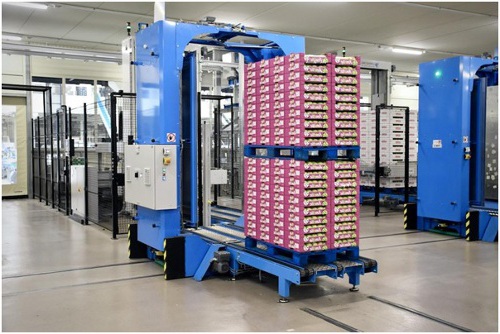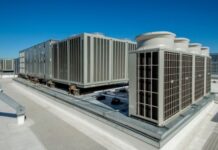Food manufacturing presents many unique challenges, including maintaining strict hygiene standards, managing complex supply chains, and adhering to regulatory requirements. Achieving efficiency and effectiveness in such a dynamic industry requires skill, diligence, technological adeptness, and a comprehensive understanding of the plant’s processes. Throughout this article, we explore the pivotal aspects that can make or break the efficiency of a food manufacturing plant.
The Role of Advanced Equipment and Technology
The backbone of any manufacturing plant, let alone food manufacturing, is its equipment and technology. Advanced machines can streamline production and reduce waste, leading to increased productivity and sustainability. One such critical machine is the industrial reciprocating compressor. These compressors are popular in food processing where they’re used for refrigeration—an intrinsic requisite for most, if not all, food manufacturing processes. Not only does the industrial reciprocating compressor promise efficiency but also ensures foods are processed under the optimum conditions to maintain their freshness and quality.
Besides standard production machinery, food manufacturers are turning to automation and robotics to enhance productivity. These technologies help address the challenges that traditional methods present, such as human error and inefficiencies. Automated systems perform tasks with precision, speed, and accuracy, boosting productivity while reducing operational costs.
Overall, food manufacturing plants should look to invest and upgrade their technology and machinery as a way to boost productivity while improving product quality and worker safety. By strategically investing in advanced technology like industrial reciprocating compressors and automation, food manufacturing plants can create an environment conducive to productivity and efficiency.
Strategies for Supply Chain Management
A robust supply chain is key to any successful food manufacturing process. Effective supply chain management includes managing interactions with suppliers, production, handling of products, and shipping to the market. It’s about more than just ensuring raw materials arrive at the plant on time—it’s about maintaining quality, minimizing waste, managing costs, and lessening environmental impact.
One way to optimize the supply chain is by leveraging data. Predictive analytics can support decision-making about when and where to source raw materials, how much to order, and which transportation route to use. By using real-time data, decision-makers can adapt more quickly to changing circumstances and ensure a smooth, efficient operation.
Another approach is to build strong relationships with suppliers. This involves communication, mutual understanding, and shared objectives. A strong partnership can facilitate problem-solving, create efficiencies, and reduce the chance of supply disruptions. Therefore, fostering supplier relationships should be part of any food manufacturing plant’s strategy for supply chain management.
Regular Plant Maintenance
A well-maintained plant is a more efficient one. Regular check-ups and maintenance work on machines, fleet vehicles, and even software systems can spare a manufacturing plant from breakdowns and malfunctions which can halt operations. For instance, engine & transmission repair services are crucial for ensuring a plant’s fleet of trucks is in working condition to transport the finished food products to their final destinations.
Furthermore, setting a proactive maintenance strategy can prove invaluable. Predictive maintenance, for example, uses data, machine learning, and analytics to predict when equipment is likely to fail or require maintenance. This avoids sudden downtime and ensures the continuous running of the plant.
Besides machinery, the workforce must also be considered in regular maintenance. Employee wellness and safety are equally important in running an efficient food manufacturing plant. After all, machinery can be repaired or replaced, but the health and well-being of workers are irreplaceable.
Altogether, running an efficient food manufacturing plant entails leveraging advanced machinery and equipment, optimizing supply chain management, and carrying out regular maintenance. While each of these aspects carries its own weight in operational efficiency, together they form a holistic path to optimal plant outcomes.




















